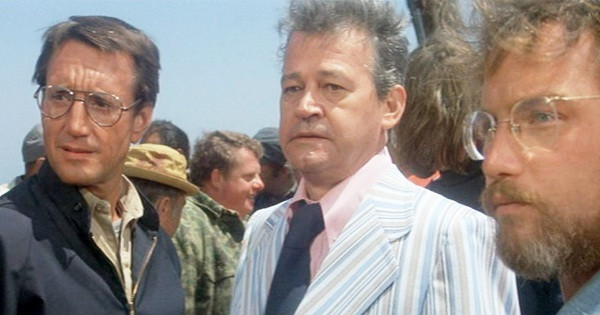Boris Johnson once remarked that the “real hero” of classic horror flick Jaws is mayor Larry Vaughn, who kept the beaches open despite warnings of a giant killer shark on the prowl.
The mayor’s foolhardy order led to the gruesome death of a young boy, but Mr Johnson argued that Vaughn should be praised for trying to protect the local economy.
“We need more politicians like the mayor – we are often the only obstacle against all the nonsense which is really a massive conspiracy against the taxpayer”, the future prime minister argued when he was running for London mayor in 2006.
The remarks were obviously intended as a joke, but they are telling.
Just last summer the prime minister reenacted his favourite scene from a film – “the multiple retribution killings at the end of The Godfather” – with the sacking of multiple high profile ministers, the past few weeks has perhaps demonstrated the continuing influence of fiction on the PM.
Mr Johnson has been reluctant to impose formal restrictions on our everyday lives, instead preferring to advise and encourage us not to congregate in groups and latterly telling pubs, bars and restaurants to close “as soon as they reasonably can”.
The unease at imposing a lockdown, like that in place in varying degrees across the continent, speaks to Mr Johnson’s deeply held liberal beliefs about the role of the state and what it means to be British.
Yet the voices demanding this, both inside and outside government, have been getting louder and louder. There is unease that the UK is behind the curve and many feel the government needs to act now if we are even to keep the death toll to Italian levels.
The government’s original scientific estimates, based largely on Chinese data, were reasonable at the time but turned out to be wrong. It became clear ten days ago that the picture from Italy was far worse and that cases were doubling every three days, not every five.
A future public inquiry will no doubt decide whether the choice to not shut down earlier was responsible, but Mr Johnson could do well to remember that the first duty of any government is to protect and safeguard the lives of its citizens when he mulls over further action in the weeks ahead.
